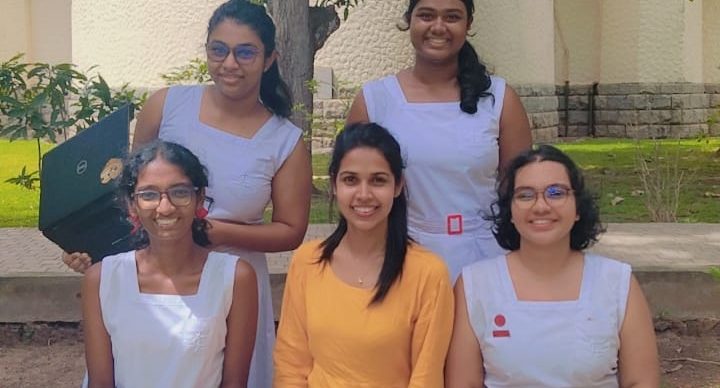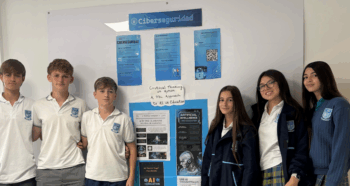“Cross- border collaboration in education is imperative for learning. I must say it has been a very satisfying experience for me. I would like to thank the Cambridge system which gave me an opportunity to connect to a Cambridge school in Sri Lanka. I have learnt a lot by mentoring an Art teacher in Sri Lanka who is new to the Cambridge O Level Art & Design syllabus (6090). I feel this should be done more often, where Cambridge schools can connect, help and guide each other.”
Art teacher, Dawood Public School, Pakistan
At Cambridge, we believe in creating better teaching and learning opportunities for students and giving them the confidence they need to thrive and make an impact in the world.
To achieve this, it is vital to collaborate and share information and best practices. So, when two schools in Sri Lanka were introducing new Cambridge subjects – Cambridge O Level Art & Design and Cambridge International A Level Media Studies – it made sense to match them with schools that were already experienced in teaching those subjects.
The first school in Sri Lanka, Musaeus College, was matched with Dawood Public School in Pakistan, while the second school, Ladies College, was matched with Alpha College in Pakistan.
How did the collaboration come about?
Being the first school in a country to introduce a new Cambridge subject can be challenging, as it’s harder to get insights from fellow teachers. The teachers from the schools in Sri Lanka said: “We recognised early on that teacher training was crucial for successfully introducing a new subject at our school. The Country Manager for International Education at Cambridge in Sri Lanka was very helpful in guiding us and played an important role in connecting us with schools in Pakistan who were offering these subjects.”
The schools in Sri Lanka decided to offer the new subjects in Cambridge O Level Art & Design and Cambridge International A Level Media Studies because of a keen interest shown by their students. Teachers felt the new subjects would provide their students with versatile subject content that reflects global trends and enhances their professional skills for modern society.
How the schools supported each other
The mentorship and learning between the schools took place through online sessions and meetings. The teachers in Pakistan helped the Sri Lankan teachers to develop a learning plan and gave advice on teaching Cambridge subjects effectively.
Speaking on the value of their partnership, one of art teachers from Dawood Public School in Pakistan said:
“Being a mentor for Ms. Saumya Kamunayaka of the Musaeus College has been a great experience. It has given me confidence in teaching the syllabus. I look forward to more such opportunities where I can use my experience and expertise to guide teachers facing difficulty teaching the Cambridge O Level Art & Design syllabus.”
In Sri Lanka, the teachers had this to say:
“The collaboration with the Pakistani school was instrumental in helping us deliver quality lessons for media studies. The media studies teacher from Pakistan was incredibly generous in sharing her teaching materials with us, which we found extremely helpful in developing our coursework and lesson plans. We also appreciated her guidance on the marking and grading of the coursework and the theory content. When we informed our students that we were collaborating with a Pakistani school, they were thrilled and excited to be part of this unique learning experience.”
This collaboration turned out to be an exceptional experience, enabling schools to tap into unparalleled learning opportunities by being part of the Cambridge community. This exercise saw teachers from four institutions come together and foster a vibrant exchange of ideas regarding teaching methodologies and practices. Principals from Pakistan and Sri Lanka mentioned that it was a dynamic platform where innovative strategies were shared, tailored to meet the diverse needs of their students.
Such opportunities for collaboration across borders not only enhance our approach to teaching and learning, but also open doors to valuable networking experiences. These collaborations allow teachers to establish meaningful connections, expanding their professional horizons and gaining insights from a broader educational community.
The collaborative spirit amongst the schools fostered a sense of unity and mutual growth, transcending borders and embracing the true essence of global education. Ultimately preparing our schools and our learners to be ready for the world.





